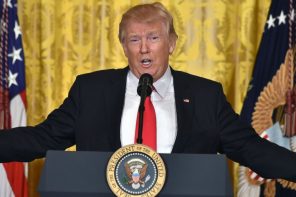David vs. Goliath; Mom n’ pop vs. large business; Illegal vs. legal. In the dark clouds surrounding the mass closure of dispensaries and lost jobs, future growth and monetary gain are providing a beautiful silver lining to the situation. The Cannabis industry may be the fastest growing industry in America with an unprecedented 74% growth rate from 2013-2014, but it is facing yet another roadblock: The City of Los Angeles has once again announced their intention to close hundreds of local medical Cannabis dispensaries, putting thousands out of jobs. It’s the sound of a broken record with the same song playing over and over again. The basis for the shutdowns center on the 2013 passing of the infamous Prop D, which in short, limits the amount of dispensaries in LA and raises the taxation amount.
The Bright Side
Since the passing of Prop D, the city of Los Angeles has routinely announced its intentions, and failed to enforce the 135-dispensary location limit as is written in the proposition. That announcement is now being voiced more frequently and appears closer to enforcement than ever before. While this sounds like cause for alarm within the industry, there are positives that could resonate across the Cannabis business community. The closing of illegally operated dispensaries will allow for more industry transparency through government control and taxation. Perhaps most importantly, it could provide a much-needed boost towards stabilizing the regulation on Cannabis consumption. Funneling all patients through regulated and legal dispensaries would give the government the opportunity to focus on the economic benefits of the industry.
In theory, the city of Los Angeles has already left over $600,000 on the table.
The true benefits to enforcing legal limits are revealed with the application of some simple mathematics. Prop D limits the city of Los Angeles to 135 dispensaries and raises taxation from 5% to 6% per $1,000. A 2014 UCLA study concluded that there are at least 418 dispensaries still in operation, 283 more than the legal amount. According to the Marijuana Business Factbook, each dispensary averages 190 patients. With that number, we can estimate that if all 283 illegal and unregulated dispensaries close, then 53,770 patients would be funneled into regulated and legally taxed businesses (283×190=53,770). Let’s take that number a step further. If the average patient spends $1,000 per year, which is a very conservative estimate, then these closings would funnel roughly $5.3 million dollars into legal, regulated dispensaries; the taxable portion of that pie being $318,000. In theory, the city of Los Angeles has already left over $600,000 on the table.
An Estimated 53,770 patients would seek a new, legal dispensary by which to obtain their medicine.
The tax gain is not the only impact that would be felt in the Cannabis industry if this proposition can be successfully enforced. An estimated 53,770 patients would seek a new, legal dispensary by which to obtain their medicine—That averages out to nearly 400 new patients per location, translating into a 200% increase in patient demand. That increase has the potential to cripple smaller, legal dispensaries that are unable to service larger volumes of patients. In addition, dispensaries with larger capacities would be able to drive market value, effectively pricing out smaller mom n’ pop locations. In this scenario, shops that can produce at a high rate, service more clients and reduce their operating costs would likely thrive over a smaller, more inconsistent business model.
While it may be tough for some to view the full enforcement of Prop D as a positive, those in support of the medical Cannabis industry have reason to be the proposition’s biggest fans. Regulation, taxation and consistency throughout the medical community will provide more transparency to the public eye. That transparency combined with revenue generation through proper taxation can only serve to aid in the de-stigmatization of the industry. Furthermore, this combination lends itself to industry expansion once the model is proven. Prop D could be the Arc that rescues the entire Los Angeles medical Cannabis community. Now, it is up to the city ordinance to enforce it.
Do you think LA should be able to limit legal dispensaries? Furthermore, is it fair to shut down businesses operating within the law whose only crime is being over the a lotted amount of permits? We want to know your thoughts! Comment below.










